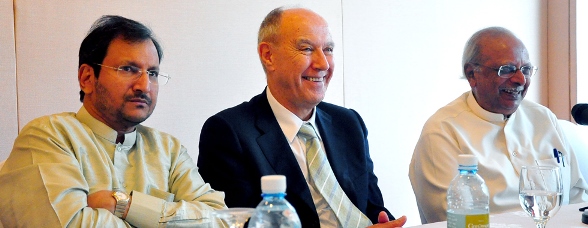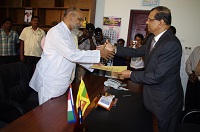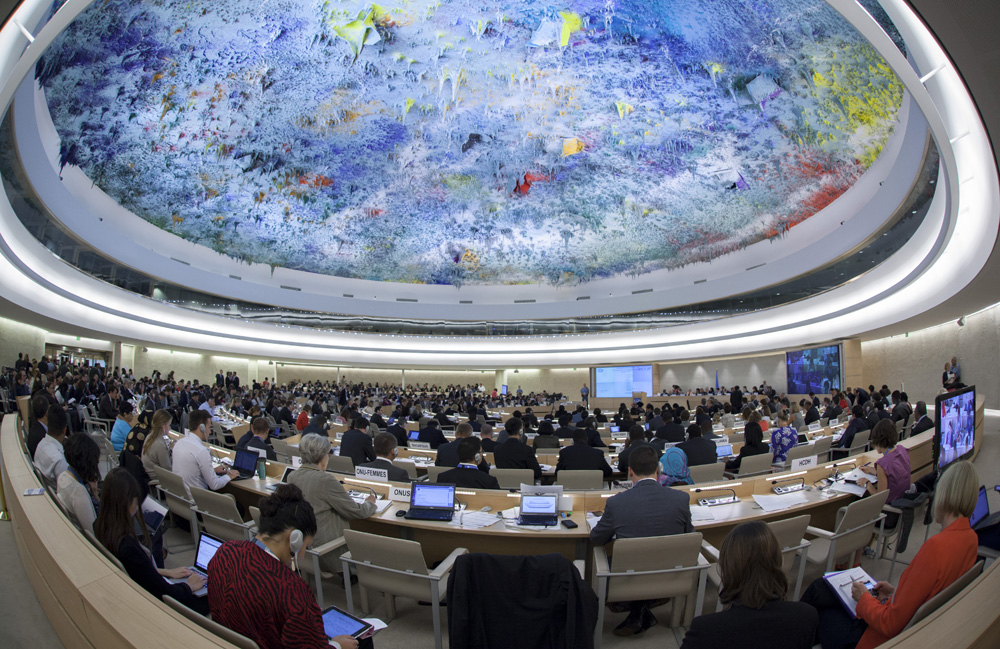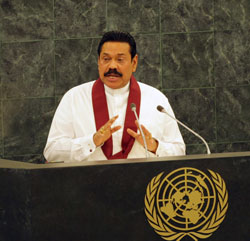


Dr. Francis Gurry, Director General of the World Intellectual Property Organization (WIPO) based in Geneva, who was in Colombo on a three day visit from 5-7 November 2013, said that WIPO and Sri Lanka are working out a 10-Point Action Plan towards strengthening the Intellectual Property Regime (IPR) in the country. He acknowledged that Sri Lanka could accrue many benefits through greater focus on Intellectual Property (IP) and also noted that in a highly competitive world and a global marketplace, proper IPR safeguards need to be in place. Dr. Francis Gurry made these observations at the media briefing held in Colombo at the end of his visit to Sri Lanka.


Former Supreme Court judge C.V. Vigneswaran received his Chief Ministerial appointment letter from the Northern Province Governor – Major General G.A. Chandrasiri, today (Oct.01).
Vigneswaran, who was nominated as the Chief Ministerial candidate for the Northern Provincial Council polls, obtained a total of 132,255 preferential votes topping the preferential vote list in Jaffna District.

Sri Lanka received strong cross-regional support in the Human Rights Council from countries in Asia, Africa and Latin America on Thursday ( 26 September 2013) which uniformly welcomed and commended the country’s significant progress achieved in the reconciliation process.

The world needs no policing by a few States, particularly when the UN is mandated to ensure international security, through multilateral engagement, President Mahinda Rajapaksa said yesterday.
Addressing the 68th session of the United Nations General Assembly, President Rajapaksa said it is disturbing to observe the growing trend in the international arena, of interference by some, in the internal matters of developing countries, in the guise of security, and as guardians of human rights.
